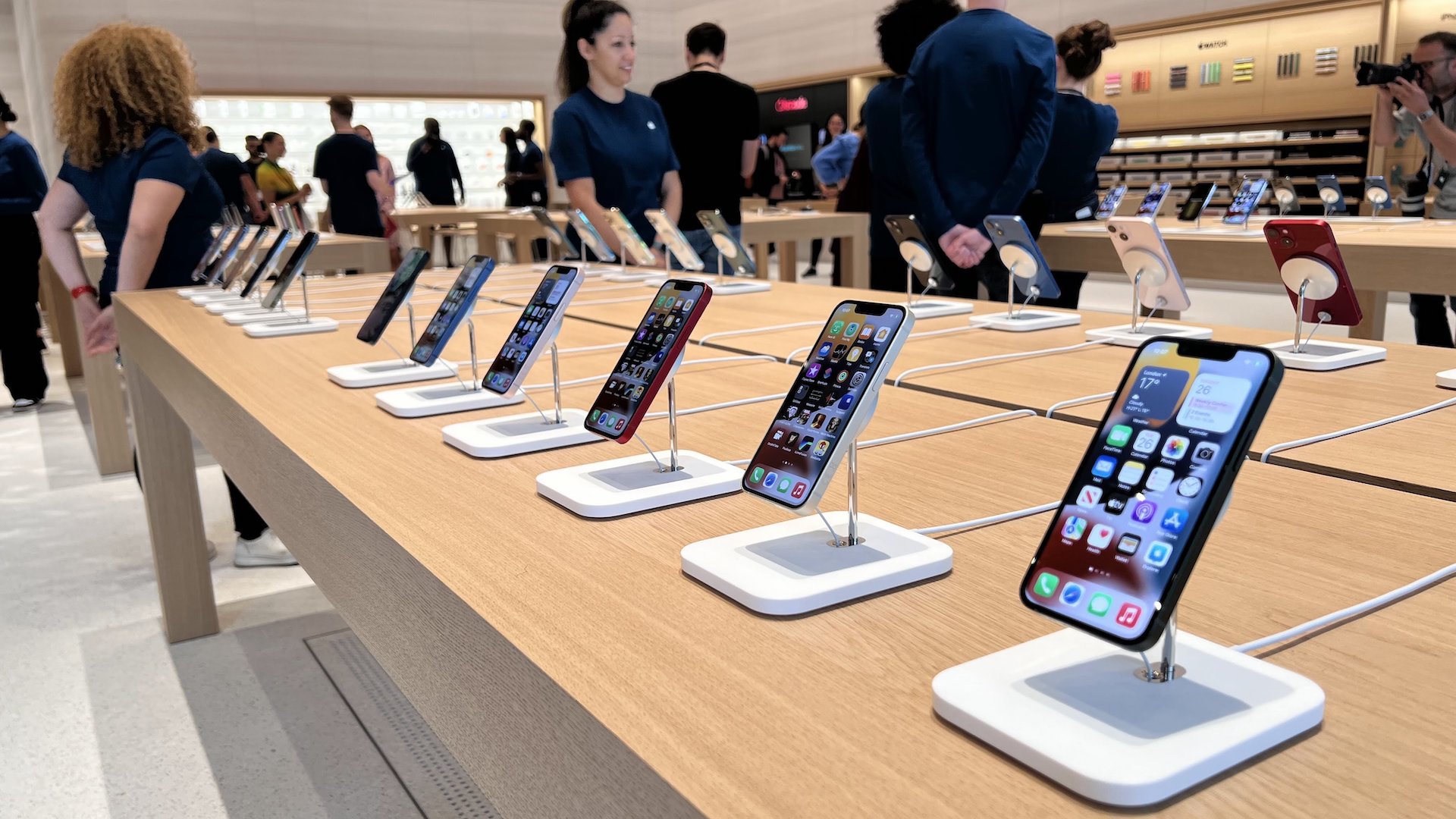Apple's iPhone shipments are on the decline, analysts warn, and you might be surprised who the big winners are
Samsung is benefiting, but it isn't the biggest winner here.

iMore offers spot-on advice and guidance from our team of experts, with decades of Apple device experience to lean on. Learn more with iMore!
You are now subscribed
Your newsletter sign-up was successful
If you bought a new iPhone 15 or iPhone 15 Pro, or even an iPhone 14 or iPhone SE during the first quarter of 2024, you're part of a surprisingly small group of people. That's the news after the analysts at IDC released data on global smartphone shipments for the period when compared to the same quarter in 2023.
According to numbers shared by the analysts at IDC, global smartphone shipments increased by 7.8% during the first quarter of 2024, but that wasn't thanks to a barnstorming few months for Apple or the iPhone. On the contrary, the growth came despite Apple's best efforts with other companies picking up the slack instead. And while Samsung found itself returning to the number one spot in terms of global smartphone shipments and market share, it wasn't the company that really drove the growth.
Instead, that fell to other phone makers, some you've likely heard of and some that you probably haven't.
And the winners are...
This is all according to a new IDC report based on its tracking of smartphone shipment data for the most recent quarter, and it makes for some interesting reading.
According to that report, a total of 289.4 million units were shipped in the first quarter of 2024 with Apple accounting for a little more than 50 million of them. That was enough to get it a spot in second place, but it represents a notable fall of more than five million units compared to the same period in 2023. It also meant a drop in market share from 20.7% to just 17.3%, too.
At the top of the pile was Samsung with 20.8% of the market from 60.1 million units shipped. But it's what was happening further down the list that makes for the most interesting reading.
Nabila Popal, research director with IDC's Worldwide Tracker team, noted that while an average selling price increase has helped in terms of value growth, something more interesting is afoot.
iMore offers spot-on advice and guidance from our team of experts, with decades of Apple device experience to lean on. Learn more with iMore!
Popal said that "there is a shift in power among the Top 5 companies, which will likely continue as market players adjust their strategies in a post-recovery world." They continued, adding that "Xiaomi is coming back strong from the large declines experienced over the past two years and Transsion is becoming a stable presence in the Top 5 with aggressive growth in international markets. In contrast, while the Top 2 players both saw negative growth in the first quarter, it seems Samsung is in a stronger position overall than they were in recent quarters."
It is in fact Xiaomi and Transsion that have been the big winners according to IDC's data. Xiaomi saw its market share grow from 11.4% to 14.1% thanks to the fact it shipped more than 10 million additional units this past quarter when compared to the year prior. Transsion managed even more, growing from a 5.7% market share to almost 10%.
For context, Transsion is a Chinese smartphone maker that owns brands including Infinix, Tecno, and Itel — companies that are sure to be less familiar than even Xiaomi to the iPhone-buying public. And with Xiaomi continuing to eat Apple's lunch in China, it's clear where the battleground will be from here on out.
More from iMore

Oliver Haslam has written about Apple and the wider technology business for more than a decade with bylines on How-To Geek, PC Mag, iDownloadBlog, and many more. He has also been published in print for Macworld, including cover stories. At iMore, Oliver is involved in daily news coverage and, not being short of opinions, has been known to 'explain' those thoughts in more detail, too.
Having grown up using PCs and spending far too much money on graphics card and flashy RAM, Oliver switched to the Mac with a G5 iMac and hasn't looked back. Since then he's seen the growth of the smartphone world, backed by iPhone, and new product categories come and go. Current expertise includes iOS, macOS, streaming services, and pretty much anything that has a battery or plugs into a wall. Oliver also covers mobile gaming for iMore, with Apple Arcade a particular focus. He's been gaming since the Atari 2600 days and still struggles to comprehend the fact he can play console quality titles on his pocket computer.
